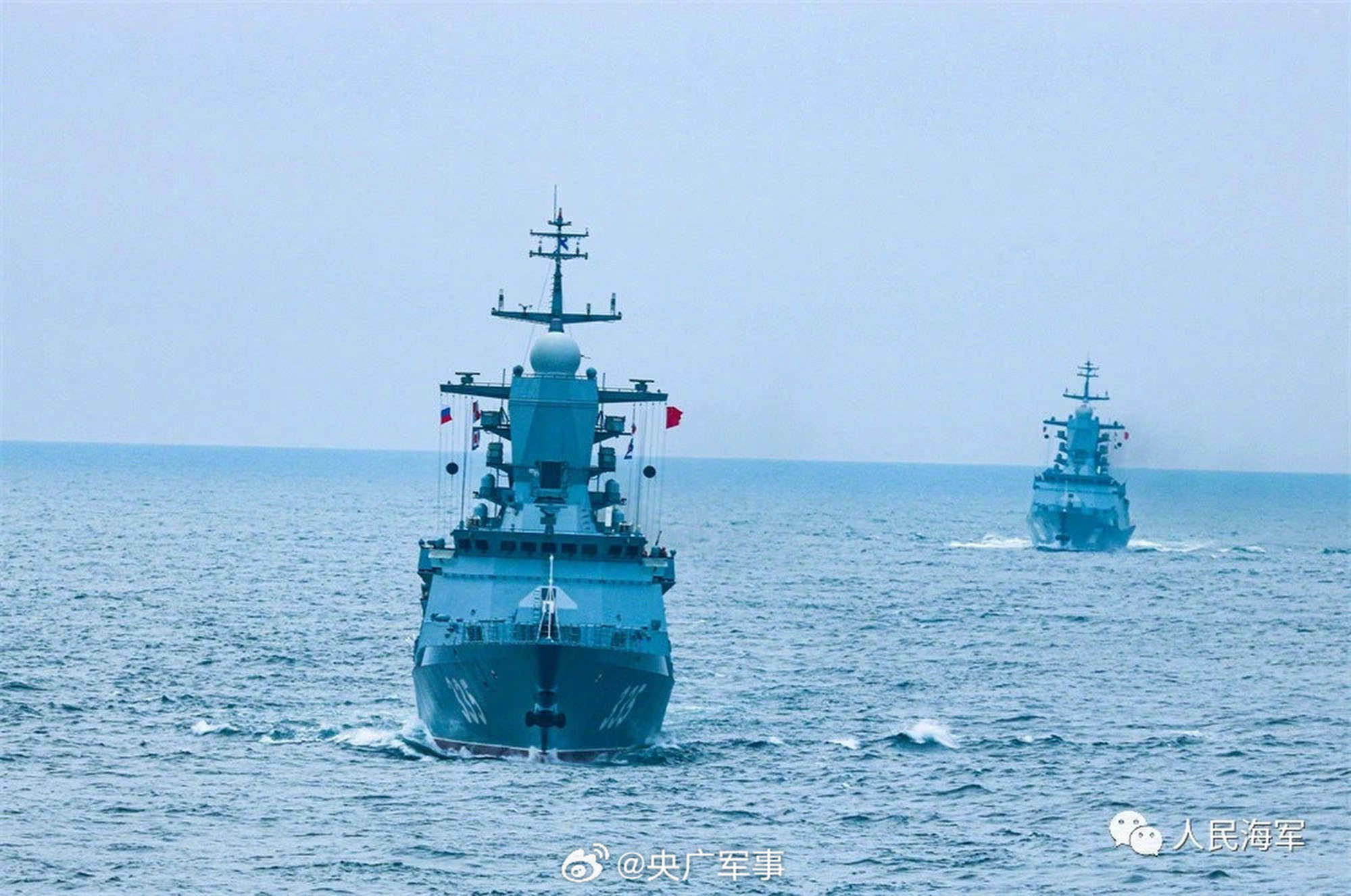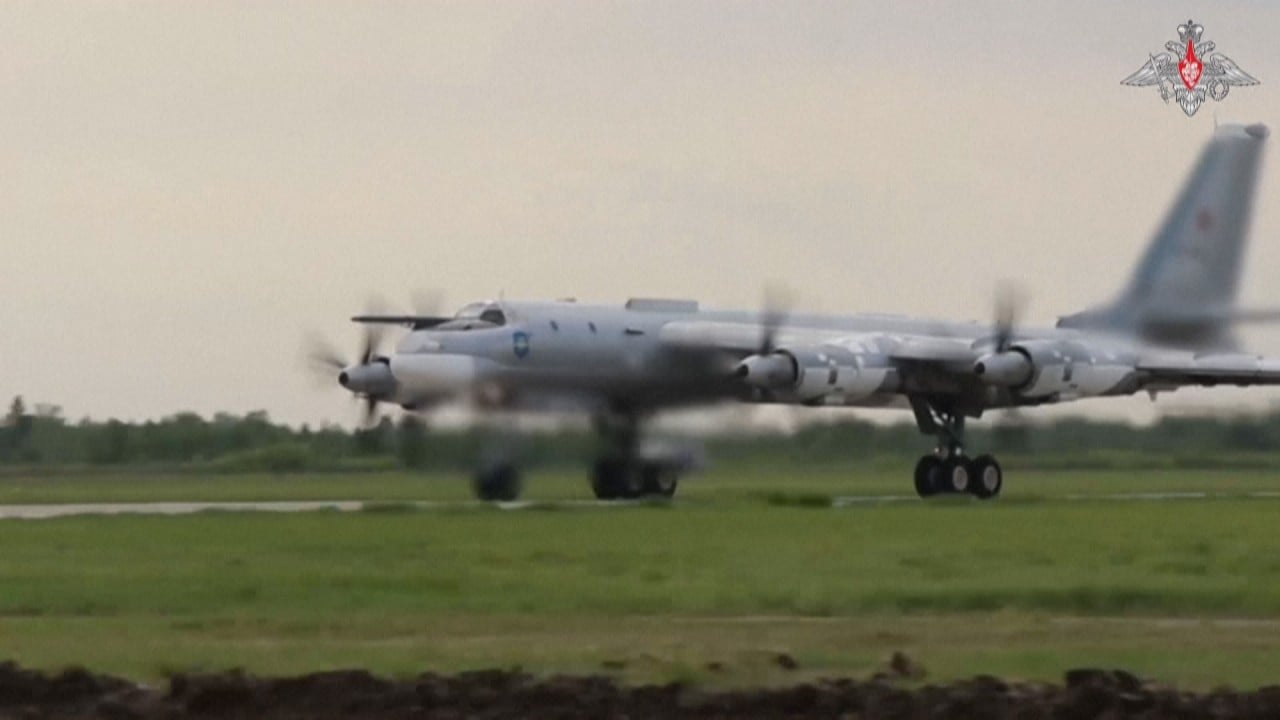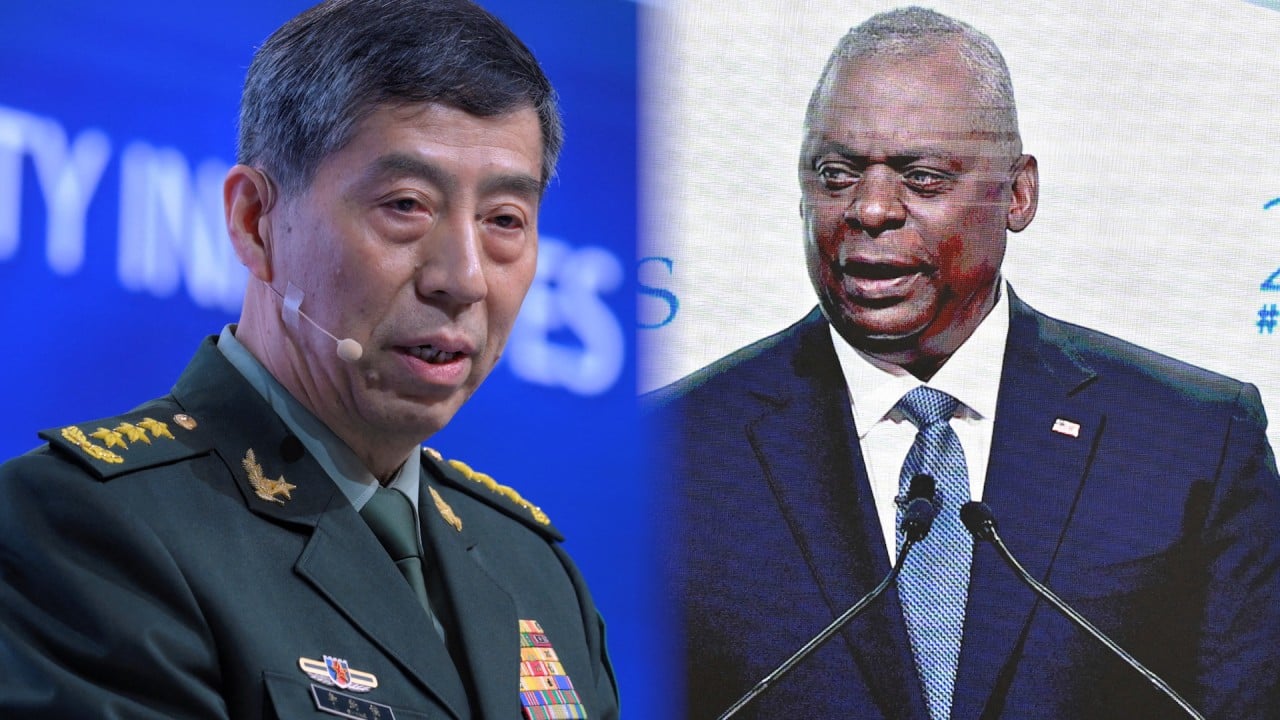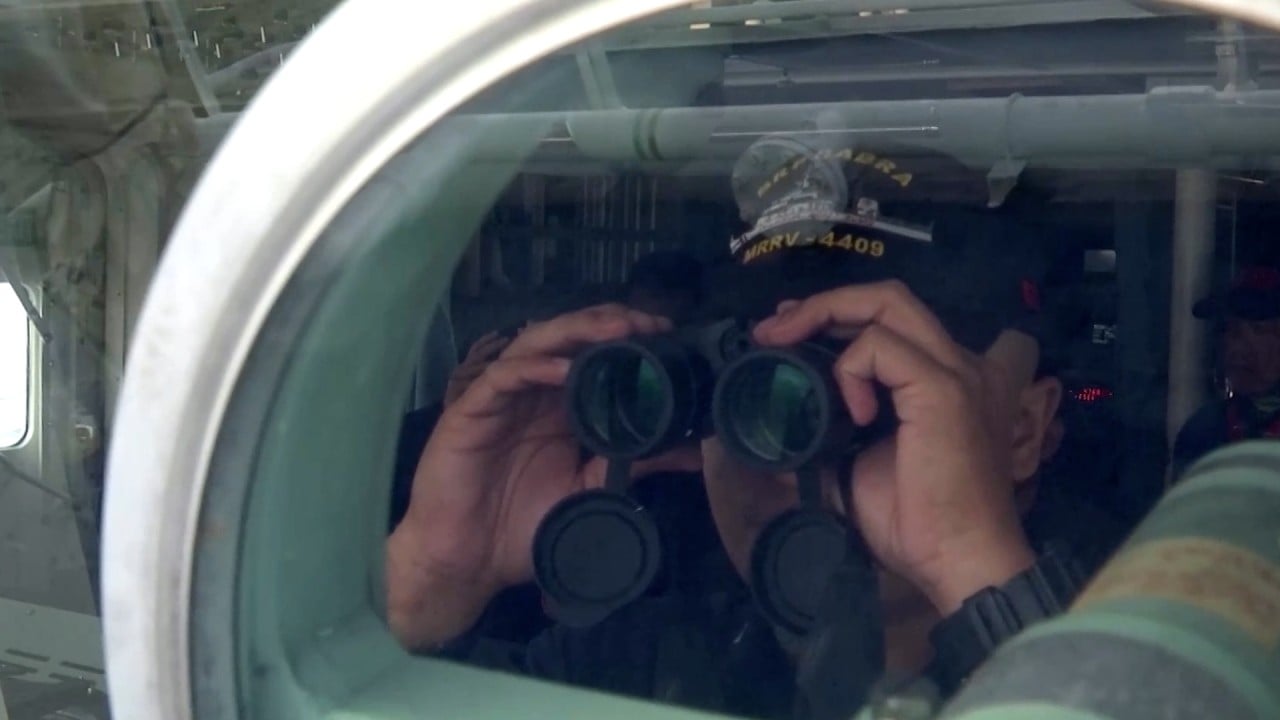
Visit by Russian navy chief to submarine academy and Chinese shipyard deemed a sign of military ties getting stronger
- Nikolai Yevmenov this week discussed naval cooperation with China’s defence minister, met commander of the PLA Navy and viewed China’s latest ships
- ‘Even the most radical supporters of Russia’s alliance with China would not favour Russia’s military involvement in Taiwan,’ says Vladivostok academic
A high-profile visit to China by the Russian navy chief Nikolai Yevmenov this week was another display of military cooperation between the “comprehensive strategic partners”, analysts said, which promised mutual support for each other’s core interests.
Yevmenov, a submarine expert who became Russia’s top naval officer in 2019, saw the Chinese navy’s latest ships and submarines and visited the Navy Submarine Academy in Qingdao, where he learned about its cadet programme.
Yevmenov’s visit was partly intended to show off the partnership between the countries but trips to military facilities also indicated the more practical aspects of cooperation, said Artyom Lukin, deputy director for research at the regional and international studies school at Far Eastern Federal University in Vladivostok.
Lukin said that while their military cooperation remained limited to regular joint exercises and strategic discussions, a far cry from those staged in the Asia-Pacific between the US and its allies, they should not be dismissed.
“The visible part of the Russia-China military cooperation has not increased since the start of Russia’s military operation in Ukraine,” he said. “But something might be going on behind the scenes, under the radar.”

Beijing did not issue a statement on foreign warships travelling close to the island it claims as its territory. Instead, Chinese sailors on Wednesday welcomed the ships in a ceremony in Shanghai, where the Russian warships made a port call to take part in fleet formation, communication and sea rescue joint training.
“It is more likely that the Russian ships were acting on their own initiative and wanted to show political support for China or win China’s support for Russia,” he said. “It’s using a military operation to express a political stand.”
Beijing sees the self-ruled island as a breakaway province to be united with the mainland, by force if necessary. Most countries do not recognise Taiwan as an independent state, but many oppose any attempt to take it with force.
Lukin said Russia would not, for now, wage war on behalf of Beijing over Taiwan.
Russia opens research centre on Xi Jinping’s ideology, the first outside China
“How could [Russia] do this if China does not even acknowledge Crimea as part of Russian sovereign territory?” he said. “Even the most radical supporters of Russia’s alliance with China would not favour Russia’s military involvement in Taiwan.”
Xiao said that allowing Yevmenov to see the Hudong-Zhonghua shipyard and its new ships and submarines showed a high level of trust between the Chinese and Russian militaries.
“The military cooperation has always been centred around joint exercises and training,” he said. “We could see new items of training, but China and Russia have been doing that for a long time. It’s just that these joint operations are more eye-catching in light of joint drills by Japan, South Korea and the United States in the Asia-Pacific.”
‘Cool summer in St Petersburg’: Russia comes calling but will Chinese be swayed?
On Monday, Beijing’s Defence Minister Li told Yevmenov he hoped China and Russia could organise regular joint exercises, patrols and competitions and improve communication on all levels, the Chinese defence ministry said in a statement.
Japan sees growing cooperation between the Chinese and Russian militaries as a threat to its national security when joint exercises are staged nearby.
Japan and South Korea have previously scrambled jets in response to joint operations by the PLA and the Russian military.
Lukin said Chinese-Russian drills could still develop some basic interoperability and allow intelligence sharing. China would be interested in getting information from Russia about how Nato weapons, such as drones, performed in the Black Sea, as well as Nato’s mode of operation.
On his visit, Yevmenov also met Admiral Dong Jun, commander of the Chinese navy.
In June, General Liu Zhenli, the head of the Joint Staff Department of the Central Military Commission, China’s top military decision-making body, met his Russian counterpart Valery Gerasimov in a videoconference.




